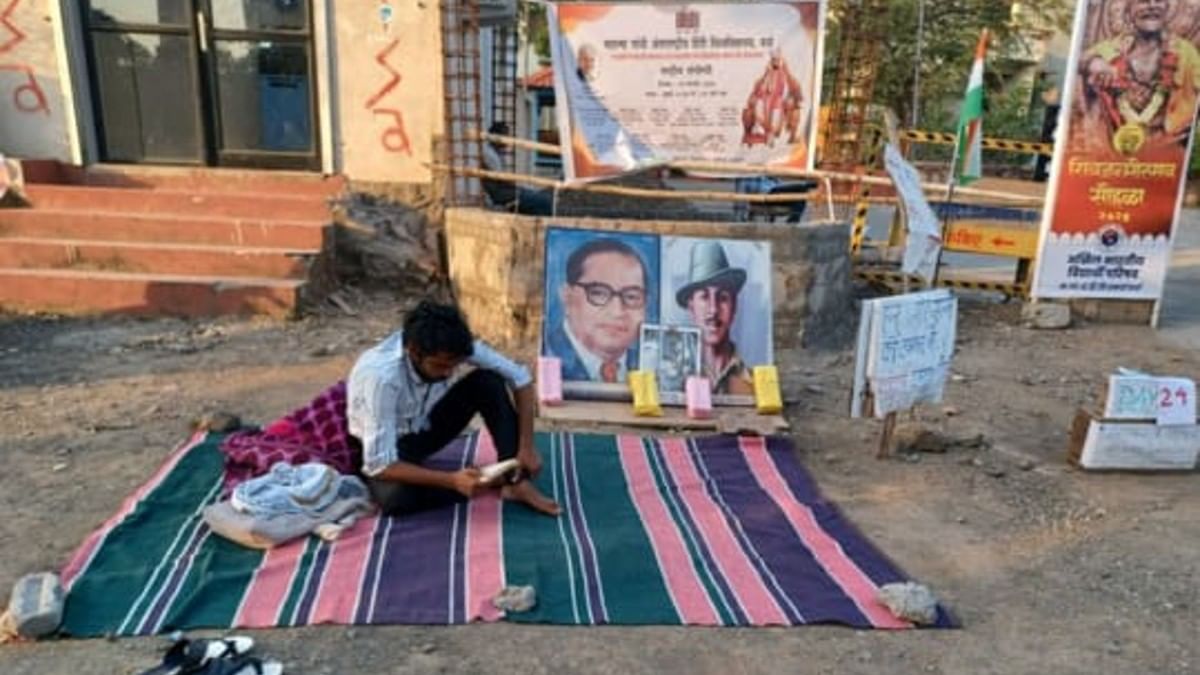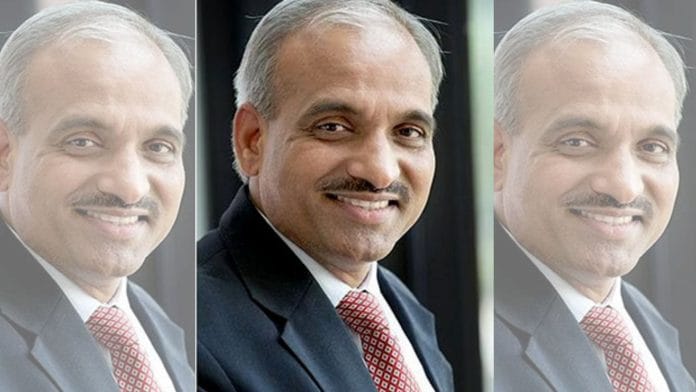New Delhi: Acting vice-chancellor of Mahatma Gandhi International Hindi University Bhimaraya Metri, who is also the director of IIM Nagpur, has likened student protests against his appointment to the top post of the central university to “anti-national activity” in an affidavit submitted in the Nagpur bench of the Bombay High Court.
Metri’s appointment had drawn charges of procedural lapses. He was made the acting V-C of the university, located in Wardha, Maharashtra, in October last year after Rajneesh Kumar Shukla stepped down under controversial circumstances.
In his 5 March affidavit, Metri suggested that since the President made the appointment in her capacity as ‘Visitor’ of the university, the remarks and protests opposing the decision also brings her office to disrepute.
“The comments are also made against the office of the Hon’ble President of India in disrepute and can be labeled as anti-national activity,” Metri said in the affidavit after the court.
The bench was hearing the case of Vivek Mishra, a student of Mahatma Gandhi International Hindi University who moved court after he was expelled over his social media remarks against the appointment of the acting V-C.
The son of a stamp vendor in Uttar Pradesh’s Sultanpur, Mishra was first suspended, removed from the university’s hostel, and barred from entering the premises on 27 January for his “defamatory, objectionable and misleading news against the university on social media”. On that day, three PhD scholars were also expelled, and one more student was suspended on similar grounds.
Through another order issued on 7 February, Mishra, a final year undergraduate student of dramatics, was expelled for “obstructing administrative work and spreading fear and disorder”.
Metri’s appointment as acting V-C has also been challenged in the Nagpur bench by L Karunyakara, a Dalit professor at the university, who cited the Mahatma Gandhi Antarrashtriya Hindi Vishwavidyalaya Act, passed in the Parliament in 1997, to assert that he, as the senior most professor, should have been holding that charge instead.
Karunyakara, who identifies himself as a “cultural Ambedkarite”, is the director of the Centre of Dalit and Tribal Studies at the university.
The Act states that in the event of the V-C’s resignation, the pro V-C shall perform duties of the V-C. And if the pro V-C is not available, “the senior-most professor shall perform the duties of the vice-chancellor until a new vice-chancellor assumes office”.
In fact, following Shukla’s resignation, which came against the backdrop of his alleged chats with a woman seeking a job, the university announced that Karunyakara will be the acting V-C.
Later, however, Metri was appointed to the post, a decision which has been opposed not just by Karunyakara, but student organisations as well.
ThePrint reached Metri for comment over calls, texts, and an email. This report will be updated if and when a response is received.
Black flag protest & Mishra’s suspension
On 26 January, three student organisations — Ambedkar Students Forum, AISA and Samyak Vidyarthi Andolan — raised a black banner during the unfurling of the tricolour.
“As expected the petitioner along with other students who were instigated by such anti-national elements created disturbances even on the functioning of a national importance i.e. flag hoisting ceremony conducted on 26.01.2024 and at the behest of these persons raised slogan as illegal Vice-Chancellor go back (sic),” Metri stated in his affidavit.
It further said: “Not only black flags were shown but also disrespect was shown to the national flag and shouted also against the action of the Hon’ble President of India in appointing me as Acting Vice-Chancellor of the University.”
The next day, Mishra was suspended. “They abused me and threw me out of the hostel within three hours. I was not given any opportunity to respond either during suspension or expulsion which was later recognised by the High Court. I sat on a fast outside the campus on 5 February and had to be hospitalised in ICU after I became unwell two days later. I was not allowed to take one exam on 9 February,” he said.

‘V-C day in, day out passing orders against students’
On 15 February, the court directed the university to allow Mishra to appear for his remaining exams. On 28 February, the court observed, “We notice that the Vice Chancellor, day in and day out, is passing the orders against the students in flagrant violation of the principles of natural justice.”
The university, subsequently, submitted in the court that it has decided to hold a full-fledged enquiry by “giving the petitioner an opportunity to defend himself and conduct the same in accordance with law” in “accordance with the principles of natural justice”.
Mishra claimed that while the university told the court it was withdrawing its expulsion orders pending enquiry, the administration continued to bar him from entering its premises.
In his affidavit, Metri said that “a group of students were indulging in several union activities in the form of raising slogans against the university and conducting themselves in a manner unbecoming of a student of a university of national and international repute. I have reason to believe that these students are not only supported by outsiders but are also by the teaching and non-teaching staff of the university, who were in leg with such anti-social elements (sic).”
In 2019, the university had suspended six students for writing a letter to Prime Minister Narendra Modi about and holding campus protests against incidents of mob lynching. The issue had assumed political significance as Maharashtra was then heading to polls, and opposition parties had demanded that the suspensions be revoked.
The suspensions were revoked days later.
(Edited by Gitanjali Das)
Also Read: ‘As chancellor, governor not merely titular head’ — SC quashes Kannur University V-C’s reappointment



